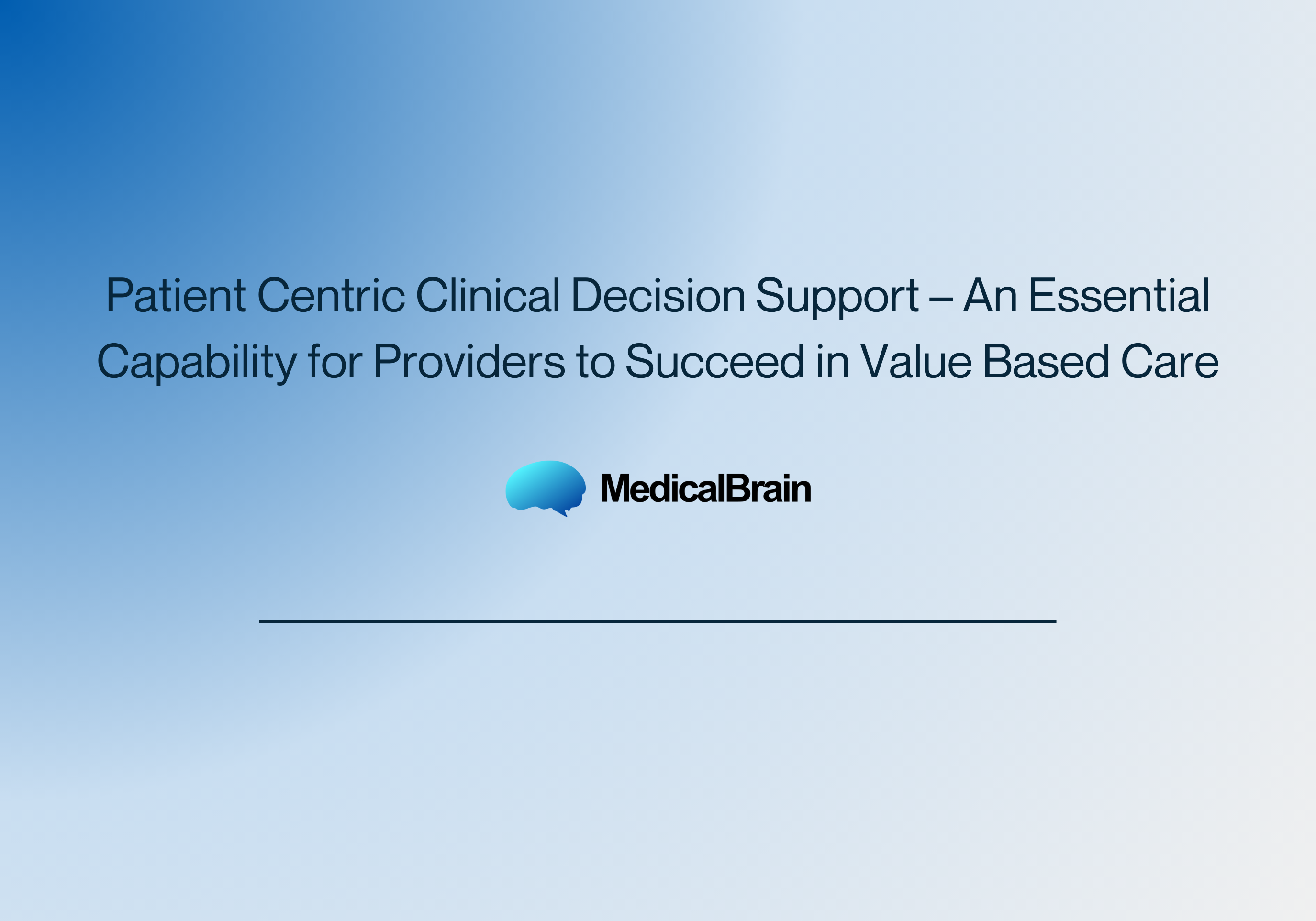
Patient Centric Clinical Decision Support – An Essential Capability for Providers to Succeed in Value Based Care
Healthcare Evolution: PCDS and Whole Person Care
In the evolving landscape of healthcare, patient-centric decision support (PCDS) has emerged as a pivotal element, now increasingly intertwined with the concept of whole person care. This holistic approach engages patients in shared decision making and places information and resources in their hands so they can take an active role in driving their healthcare.
PCDS recognizes the multifaceted needs of patients, addressing not only their physical health but also their mental, emotional, and social well-being as well as their preferences and goals for their healthcare. As we transition to value-based care (VBC), the integration of PCDS with whole person care principles is becoming crucial for healthcare providers aiming to optimize patient outcomes, achieve operational efficiency and reduce total cost of care.
PCDS is an advanced amalgamation of data-driven tools and personalized care strategies, emphasizing the unique needs and preferences of patients in the clinical decision-making process. It leverages patient-generated health data (PGHD), electronic health records (EHRs), and analytics to facilitate individualized, evidence-based clinical decisions. In the VBC model, the Centers for Medicare & Medicaid Services (CMS) actively promotes the concept of whole person care and shared decision making as a means of achieving better outcomes and cost structures.
By organizing care around individualized patient requirements and tailoring healthcare strategies to the patient profile, more effective and precise treatment plans can be implemented, leading to increased patient engagement, clinical effectiveness and efficiency.
Patient-centric clinical decision support solutions enable patient centric care. The Medical Brain’s patient centric clinical decision support system is recognized by Gartner as an example of a solution being used by patients and providers for this purpose. By aggregating and analyzing patient data and patient generated inputs, including natural conversations with patients, the Medical Brain captures a complete picture of the patient which includes the history and current situation, constantly updated.
With proactive outreach, the Medical Brain captures patient perspectives on their health status, their symptoms and adherence to care plans, and can detect in real-time health deterioration, care gaps and delays as well as potential errors as well as social concerns. Leveraging evidence-based guidelines the Medical Brain guides patients to take Immediate corrective action, eliminating the normal delays patients experience waiting for providers to respond. It also alleviates provider burden.
With the rapid transition to value-based care, providers are challenged to deliver outcomes while managing total cost of care. The incorporation of patient centric clinical decision support is being shown as a vehicle for success in achieving these goals. With the ever-increasing demands for complex chronic care management by a growing number of patients, providers are adopting technology to help scale their practices to manage more patients and monitor and guide them 24/7. It’s the only way to achieve success with VBC.
